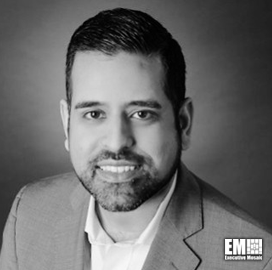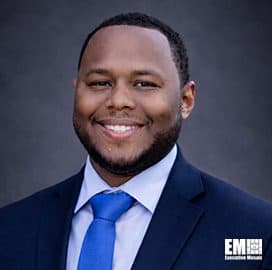
Ash Thankey,
Director,
AWS
Member Profile: Ash Thankey, Director of National Security at AWS
As director of national security at Amazon Web Services, Ash Thankey is responsible for the company’s human systems, cyber, signals intelligence and defense intelligence units within its U.S. business. He carries more than two decades of experience in commercial and federal account management, and has previously held roles at Oracle and Adobe.
Thankey recently participated in an interview with the Potomac Officers Club, in which he discussed his career inspirations, highlighted his leadership strengths and reflected on his achievements.
Read the full interview below:
When did you decide to pursue a career in the federal landscape and what were the key tasks that you wanted to complete? Any bigger goals you still want to accomplish?
As a naturalized American, my decision to pursue a career in national security stemmed from a profound desire to reciprocate the abundant opportunities the United States has afforded me. Looking ahead, I’m committed to continuing my support for the national security community, including by ensuring it has access to leading technologies to deliver its most critical missions.
What do you believe are your core strengths as a leader and what lessons taught you the most about driving success?
As a leader, I prioritize helping my team move quickly, anticipating challenges and overcoming barriers. This approach stems from recognizing that the next generation of leaders needs space to innovate and forge their own paths. The courage to attentively listen, reassess and even disprove one’s own methodologies can be transformative; it builds trust among teams and cultivates more effective leadership.
Who are the executives that have inspired you the most over the course of your career?
Carla Harris, the vice chair of Morgan Stanley, is someone I’ve found incredibly inspiring in the business world. Her accomplishments and the practical business wisdom she shares in her books and talks really resonate with me. At Amazon Web Services, I’ve had the privilege of working alongside some fantastic leaders. In particular, Christian Hoff, our director for federal civilian, and Dave Levy, vice president for federal, non-profit and health, exemplify our Amazon leadership principles. They’re full of great advice and make themselves available whenever needed. When things don’t go as planned, they treat hiccups as chances to learn. Keeping their cool during tough times says a lot about their leadership.
If your career came to an end tomorrow, what would you say have been the most significant accomplishments of your career? Where do you feel you made the most impact?
If my career were to conclude tomorrow, I would take pride in being part of efforts to help drive innovation in the intelligence community and support its critical missions. My involvement at AWS has been a piece of the larger puzzle dedicated to safeguarding our nation. In two decades, when I’m showing my grandkids around the capital area, I’ll be able to point out initiatives I played a role in creating that have contributed to our country’s security. This prospect fills me with an extraordinary sense of satisfaction and fulfillment.
How would you describe your management style and core values towards building a winning culture?
My management style centers around empathy, embodying the principles of a servant leader. I’m committed to clearing the path for my team’s success by stepping back and allowing them to thrive. Sometimes this means recognizing that success isn’t attainable. In those moments, it’s paramount to offer reassurance to our team members and convey that it’s acceptable to face setbacks. In fact, these losses can serve as profound sources of learning, eventually contributing to more substantial victories down the line. At Amazon, the philosophy of embracing failure is central because it empowers individuals to take calculated risks.
How would you advise someone entering our industry to build their resume and advance their careers to be in the best position in the years to come?
Over the years, I’ve truly come to believe that talent is everywhere. Liz Wiseman’s “The Multiplier Effect” gave this belief a boost. It’s funny how people often hold back from taking on roles or challenges because they think they’re not qualified. But we tend to forget that everyone starts somewhere. Someone gave them a chance even when they didn’t have all the skills at the beginning of their careers. Believing in yourself and taking on projects that push you out of your comfort zone is key to moving your career forward and gearing up for success.
I’d also encourage them to seek out a sponsor – someone who’s got your back when doors are closed and who’s in your corner. Carla Harris has a point when she says that while mentors are important, sponsors are the real game-changers.

Category: Executive Profiles




